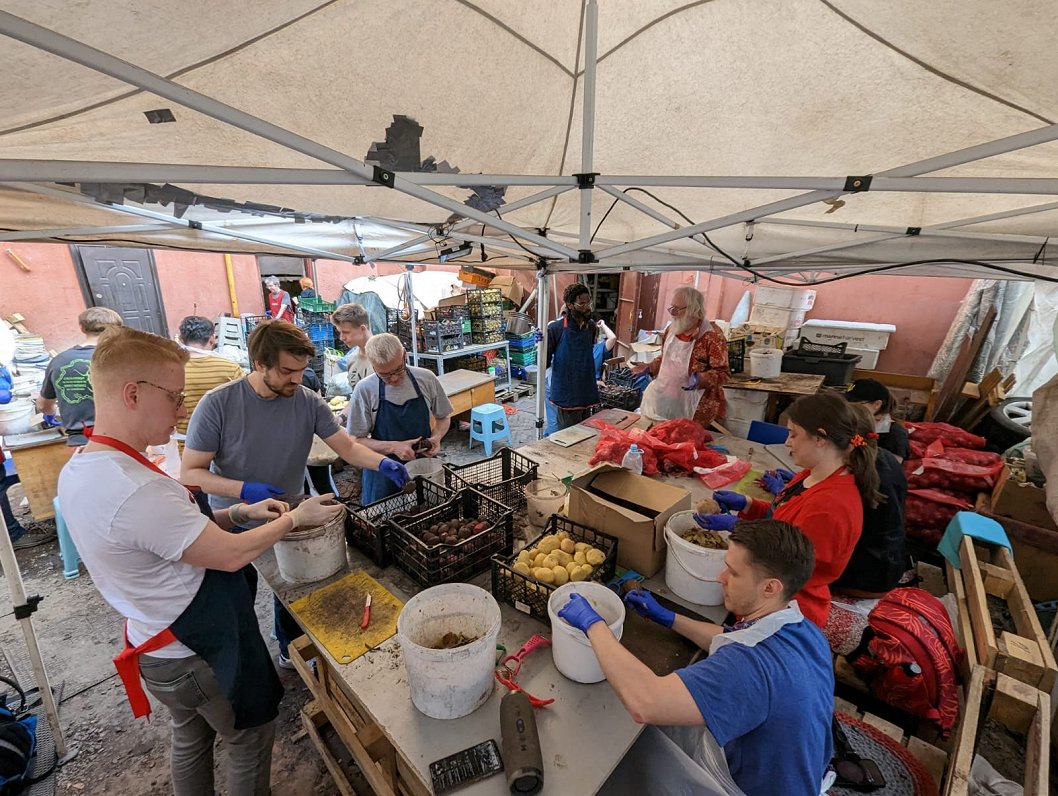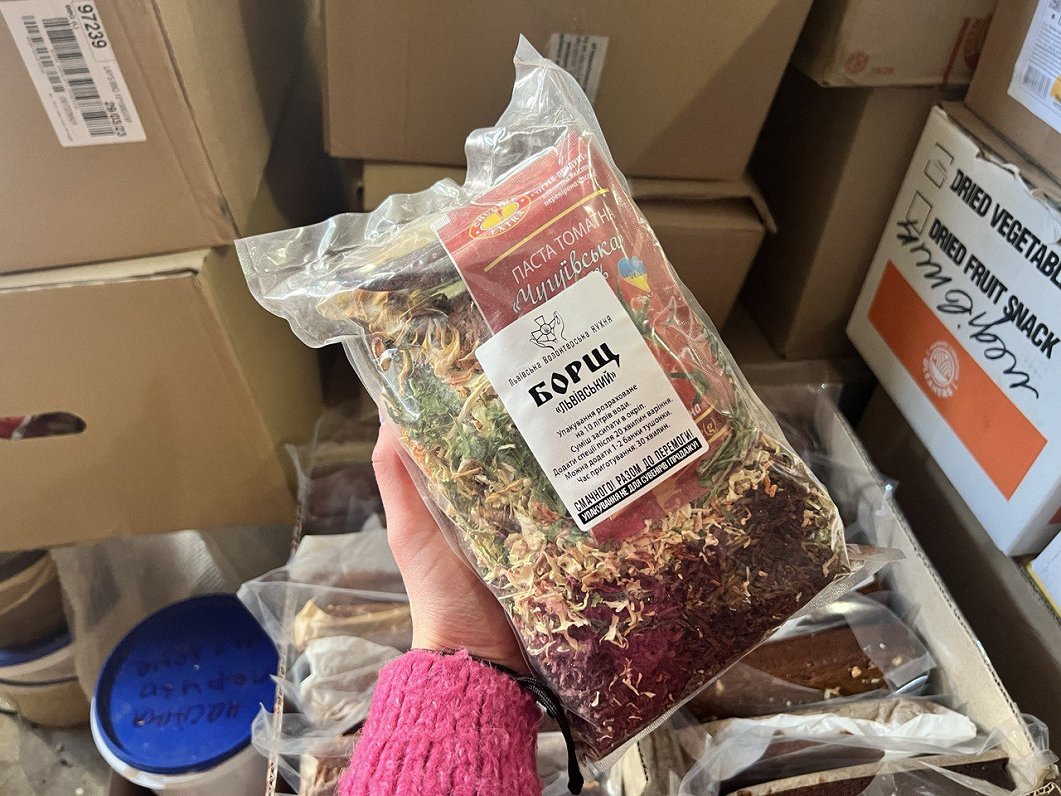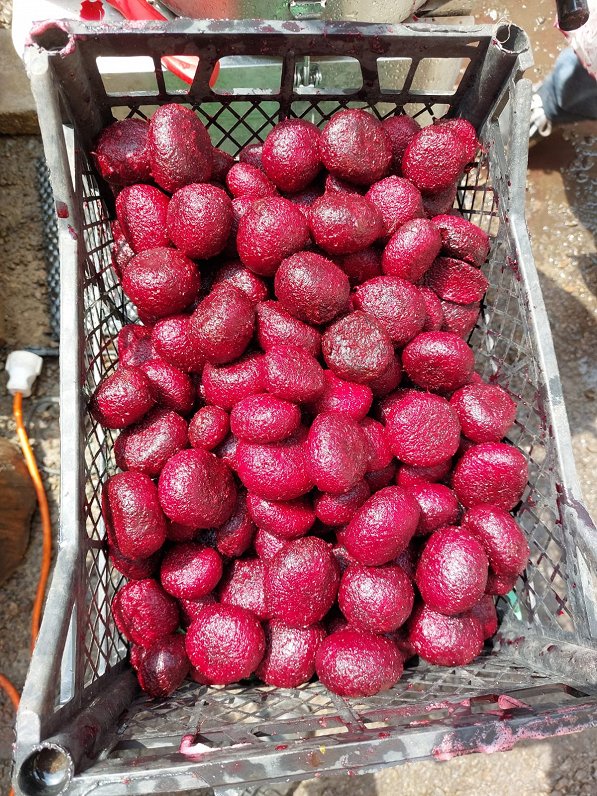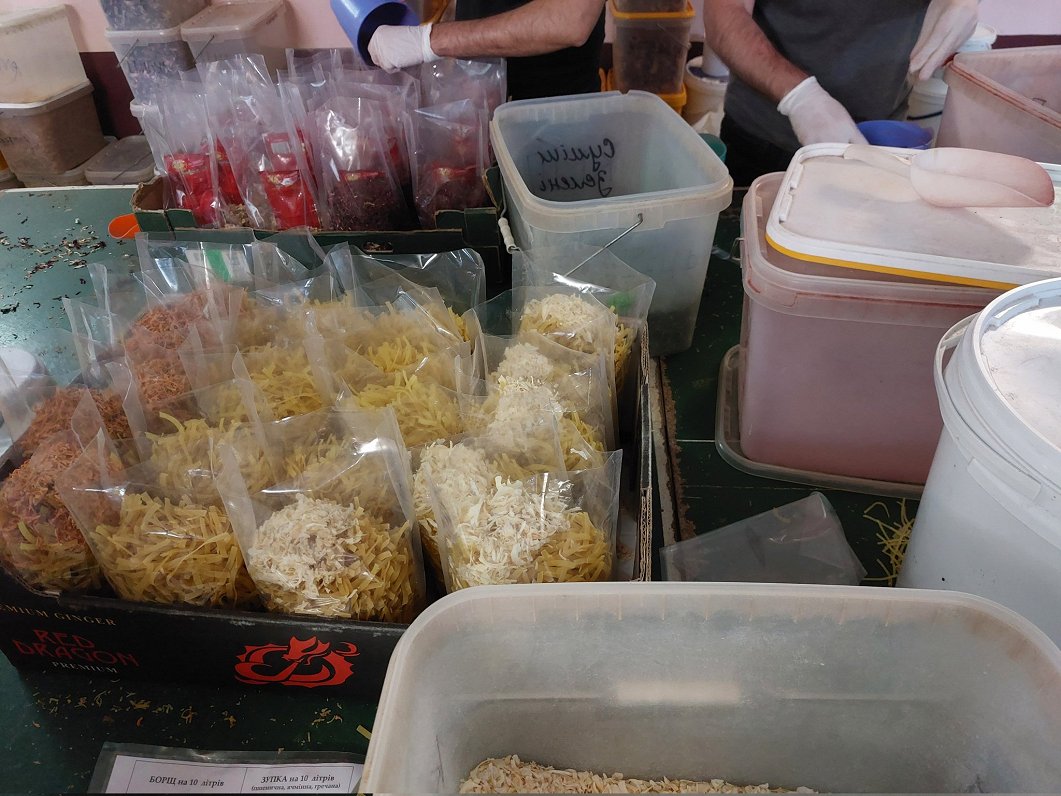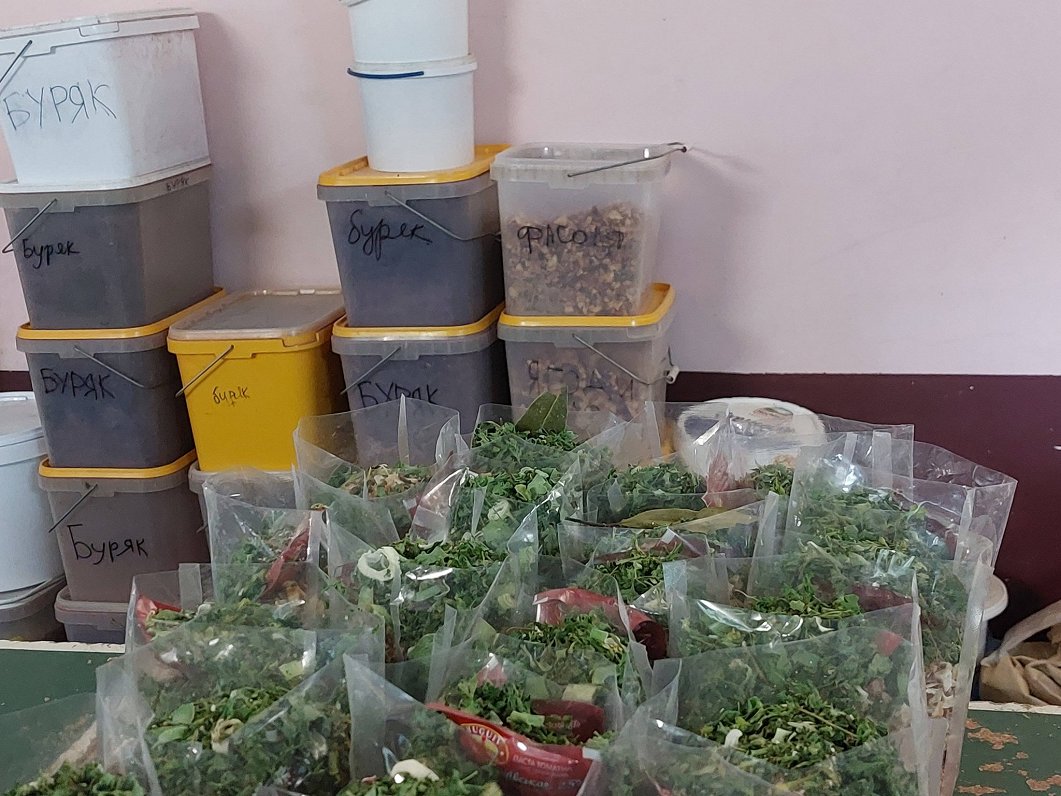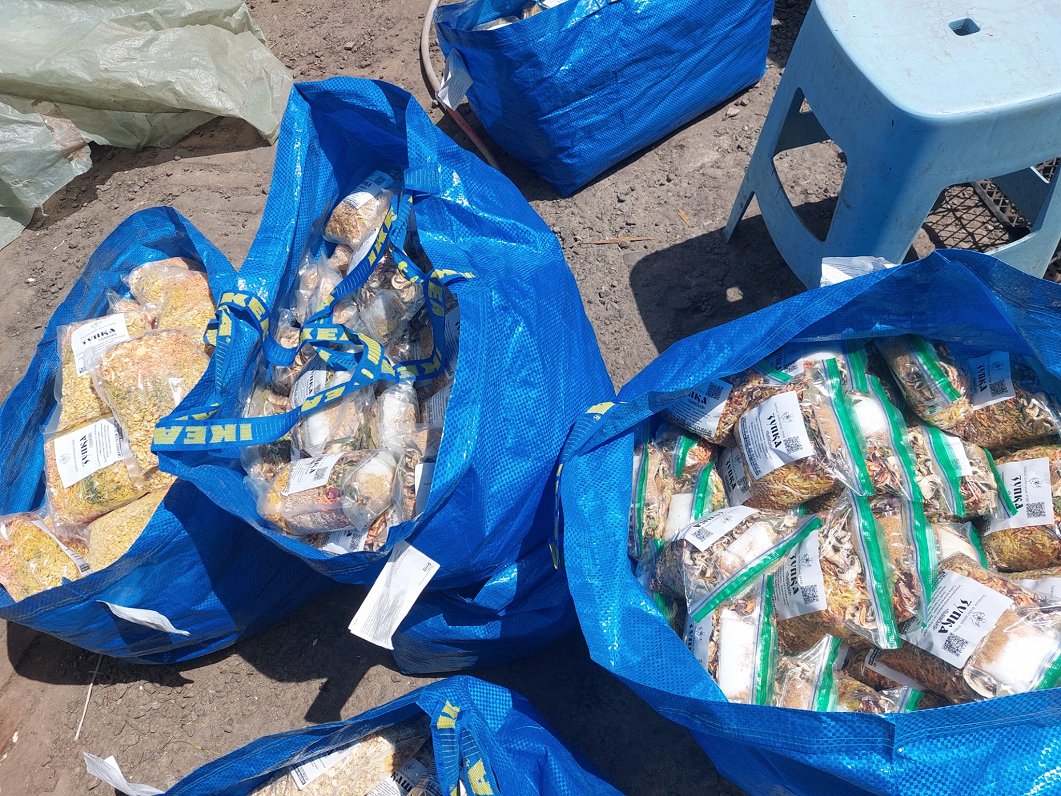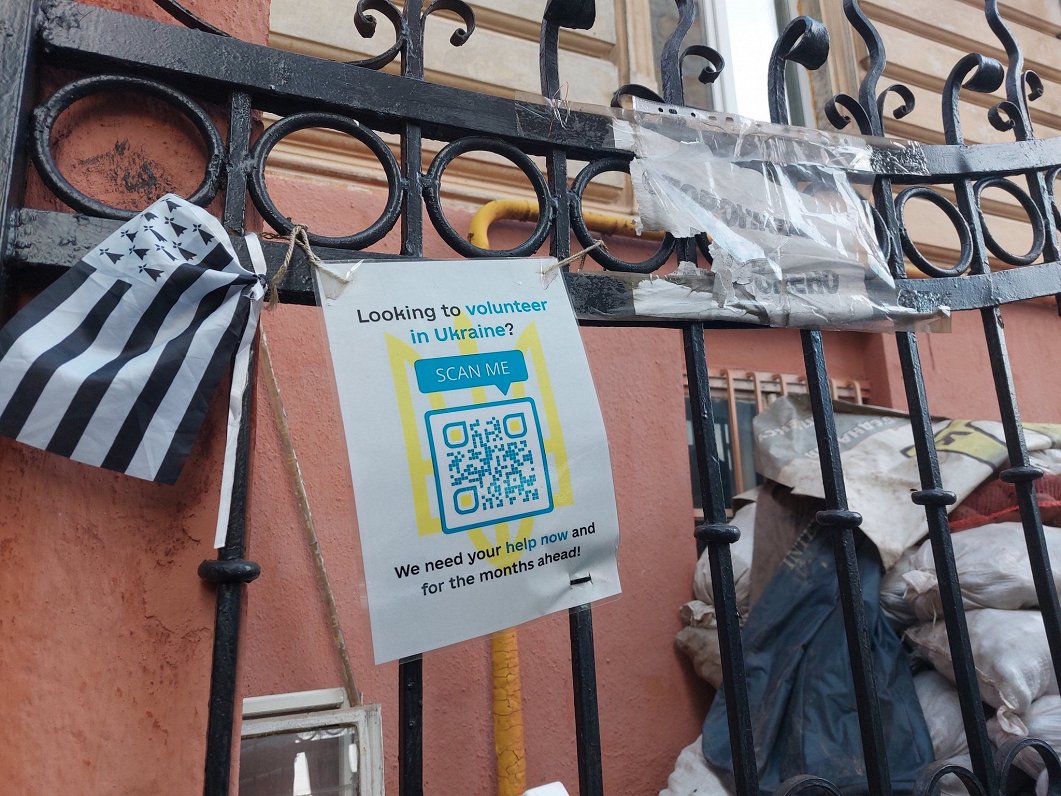Tālis Eipurs: Tell me about who you are in a few words. Who is Dita Krauze?
Dita Krauze: I am a Latvian, I live in London at the moment, have been for a while, and I work in an academic library. My work is related to the administration of electronic resources, mainly links for students and professors to access e-books and the like.
Nothing related to Ukraine, to sum up?
Well, my work is not related to Ukraine directly, but to be fair I have tried incorporating this topic since February 24 [2022]. Of course, not directly, but we have different projects at work, the library has different activities, and one of them is the creation of book and information stalls. When the full-scale invasion began, I wanted to raise the topic [..] but we didn't have much resources on Ukraine, which already tells you a lot – we did have resources about Russia.
One of the ways I got it through was the creation of an information center about how the war and different catastrophes impact people. I incorporated books about Ukraine, [..] also Syria, Palestine and other countries.
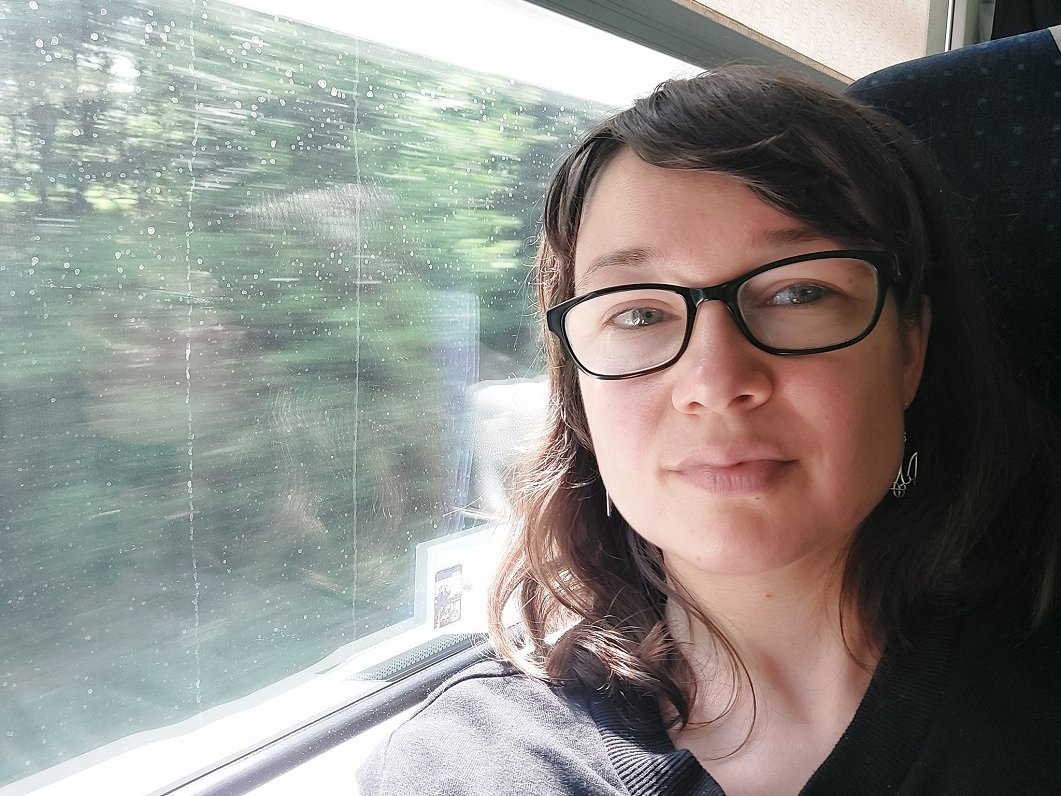
Were you related to social-political activities before February 24, 2022, or did the war give you a boost?
I had no specific links to Ukraine. I don't have friends or family there. [..] I am not in any political party or any organization but I'd like to call myself rather socially, if not politically, active.
I think currently Ukraine has all types of volunteer work in the world. What kind of volunteer work did you do?
I went to the kitchen that prepares meals to be sent to the front. It's voluntary in the traditional sense of the word, when people work without payment. The kitchen was located in Lviv, the western part of the country, and the meals are dehydrated and sent as dry meals to the front.
What were the steps that you took? What was the road to get there?
I shared my thoughts on a Discord chat for Ukraine supporters. One of the people shared a link to Volunteering Ukraine, and there were several initiatives asking people from abroad to participate. The kitchen was listed on that page. [..] Even though it is a kitchen you don't have to be a chef to go there. Anyone can go, peel vegetables or suchlike. To go to this specific kitchen, you don't have to apply beforehand. I and another volunteer wanted to go, we agreed we would rent a flat together. [..]
Before we went, we messaged one of the organizers on Twitter. You can find him as @frontlinekit, and we told him we would come but it's really not necessary. Even more, the person is now in Kherson so it's even better to not contact him about such questions.
But practically, we had to make up our minds on the dates [..], and the same webpage Volunteering Ukraine indicates several ways to get there because planes are not available at the moment so you have to go by bus, train, or car. I flew to Krakow and then took the train to the Polish border area, then another train straight to Lviv.
You had a booked apartment and on the next day you could just go to the kitchen? That simple?
Yes, exactly that simple. We found an apartment on booking.com, Airbnb also works. We had a very warm welcome, the landlady came to the station, wanted to make us vareniki. It was really heartfelt and much more simple than one would think. You just have to find time and book [accommodation]. Regarding documents – Latvians, just like all other EU citizens, don't need a visa for up to 90 days. [..] I didn't need anything else. I did apply for life insurance though, for [..] some two euros per day.
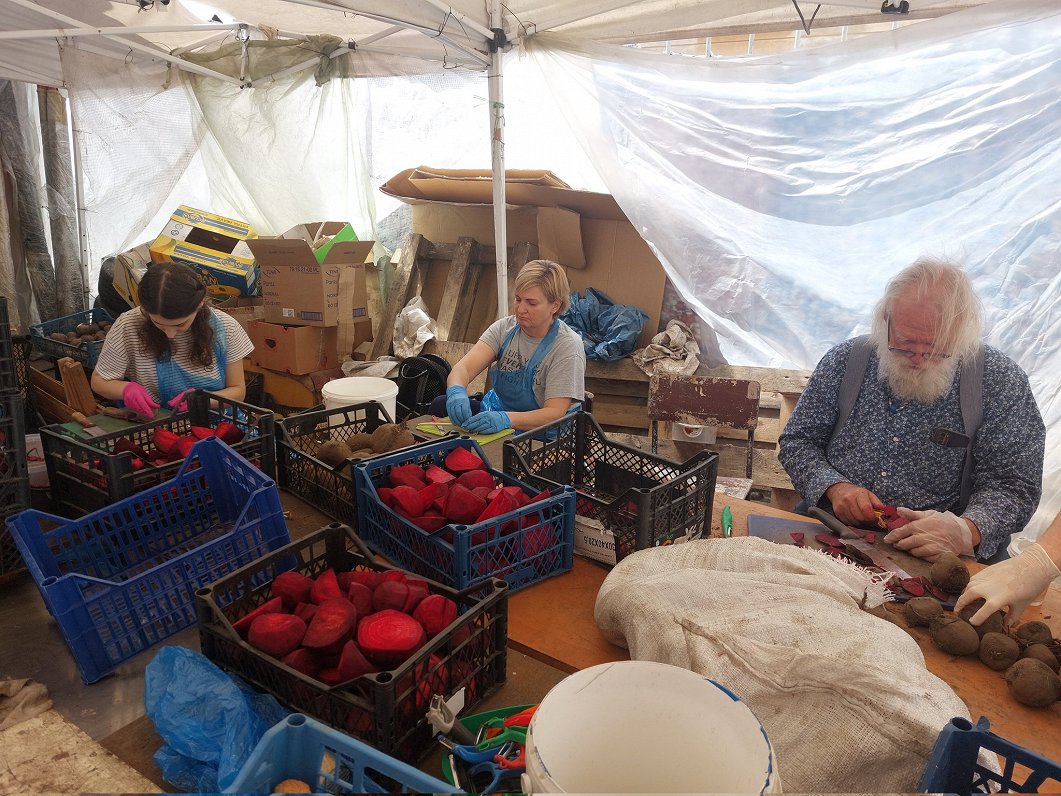
What did you see when you arrived at the kitchen?
The Lviv volunteer kitchen is located very near the city center [..] we found it on Google Maps. Going in, we saw a little courtyard, some people were sitting there, cutting beets or something like that, they didn't pay much attention to us. So we approached someone and said, hello, we are volunteers. We were quickly shown aprons, rubber gloves, and told what to do. I don't remember the first task but mostly it's potato peeling, cleaning beets or onions and the like.
How long were you there?
I was in Ukraine for 16 days, 14 full days. I went to the kitchen every day except for one when I went on a little road trip. [..] The kitchen works every day from 12:00 to 20:00 but you can come or leave early. They need people every day. Some go there every day and live there. Others devote a few days or weeks [..].
Where does the food go?
The primary recipient is the front line. Already since 2014, packaged borscht, other soups and porridge and similar meals are sent to the front. But at the moment, for example, a volunteer group from the Kherson region took a lot of parcels for civilians who need food at the moment. It is very easy to transport. They took four big IKEA bags and fed a thousand people with our soup parcels.
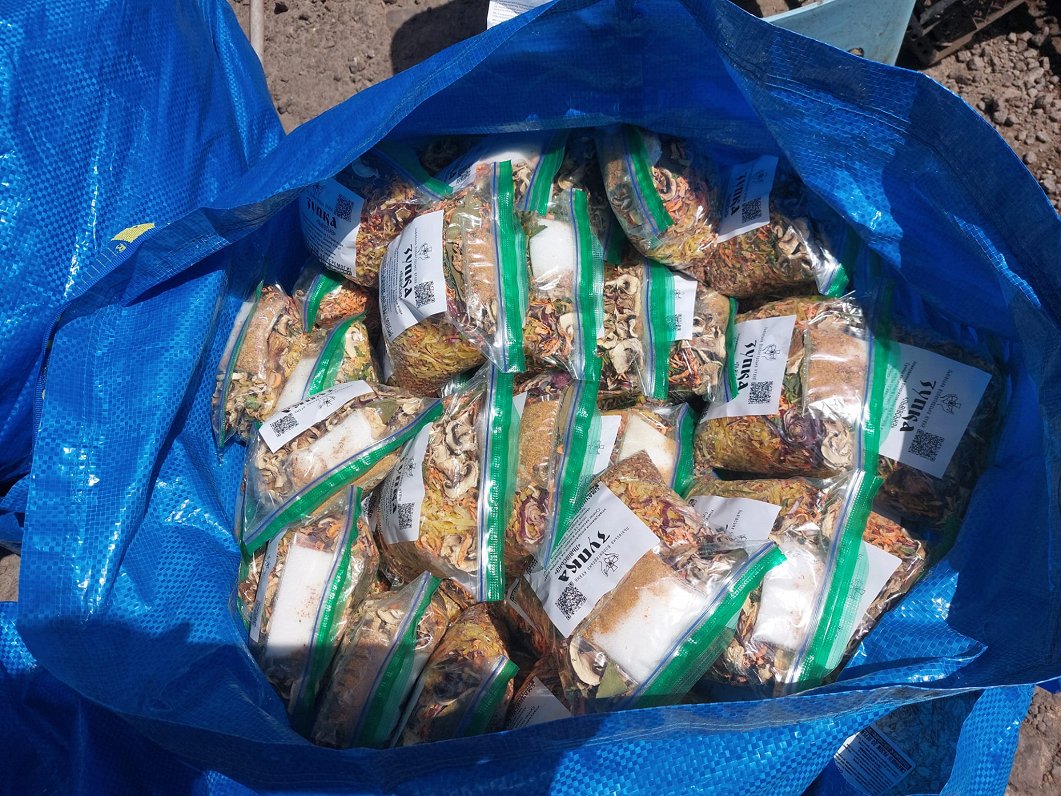
Who supplies the kitchen?
I know some ingredients are bought but some are donated by locals who grow them themselves. Of course you can't grow the quantities and soups need pasta and other things for which donations are collected.
How did the human aspect and the stories you heard impact you?
The human aspect was central because these people I met doing volunteer work, I will never forget them. [..] Being in Ukraine was a very emotional experience and there is also a sense of discomfort when Ukrainians come to you and say thank you for being here, because when you are in Ukraine and someone says thanks for peeling some beets or something, it is almost...
It is awkward because I think we should say thanks to the Ukrainians, because in reality, it is also our war. I hope it doesn't sound too cliche. But the attitude from Ukrainians...if you say you are from Latvia, you can feel more closeness, a feeling that they know you know, that you understand. [..] To be frank, it is hard to hold back tears. It is something very deep and human, the everyday boundaries and modesty disappear. You are eye to eye with someone and there is a mutual understanding even if you don't speak the same language. Words are not really needed, so to speak.
What can you say about safety being there?
Yes, of course it's a country at war. At the same time, it is often forgotten that Ukraine is the largest country in Europe and, of course, there are differences in the security situation between the various parts of it. The west of the country is relatively safe, so I wasn't too worried about what might happen. At the same time, it would be fair to emphasize that there are alarm sirens. When I was there, they were every night, one also during the day.
I learned that the night before, 10 “Shahed” drones were sent to Lviv and the vicinity but the air defense also knocked down all 10.
There are bomb shelters but basically, at least in Lviv, I don't know how other parts of Ukraine are, people don't use them, because the specifics of Lviv are that most of the buildings are built there during the Austro-Hungarian Empire , and their walls are substantial.[..] At first I may have responded to that alarm a little differently, but at the end … The first time I heard it, of course, I was prepared for it and knew it would be, but it affected me. Not even the sense of danger, but the anger of so big a dissonance between you living in a western city where everything seems normal as anywhere, but there are sirens of alarm in parallel. It was anger to some extent.
What would you recommend to people who would like to help?
If I remember the preparation process now, I thought at first that I would need things that actually turned out to be unnecessary. For example, an external battery or dry shampoo. I mean, what if you don't have access to electricity or water. Such things. In fact, all this was unnecessary. [..]
I want to encourage that the volunteer community is very accepting, there are people from different countries, there is no need to worry about language, and most foreigners speak English. [..]
What about the material side? What should be counted on?
I can only talk about the particular volunteer kitchen of Lviv. Lunch was secured, breakfast and dinner, you provide for yourself. It should be said that prices in Ukraine are relatively very low. Even in finer restaurants, I didn't spend more than maybe €10, €15. Living opportunities are very extensive – as desired. Some of the volunteers I know live in hostel for four euros a day, others may rent an apartment. [..] It won't put a big dent in your wallet, so to speak.
What was the aftertaste of all this?
I have already mentioned it as one of the best decisions in recent years. That must be the case. At least I think so at the moment. There is some sort of uplift, there is much more peace. It sounds ironic, though, but as I entered Ukraine, despite the sirens, I actually slept much better than in London, and the effect is still there. Such a great sense of fulfillment.
I want to go back, I just need to renew my passport and do such practical things, but the connection is still there. In some private WhatsApp groups with other volunteers I was still following what was going on in the kitchen. In fact, the experience in my case has been very positive, I want to go again and suggest to others, but of course, each is responsible for themselves.
